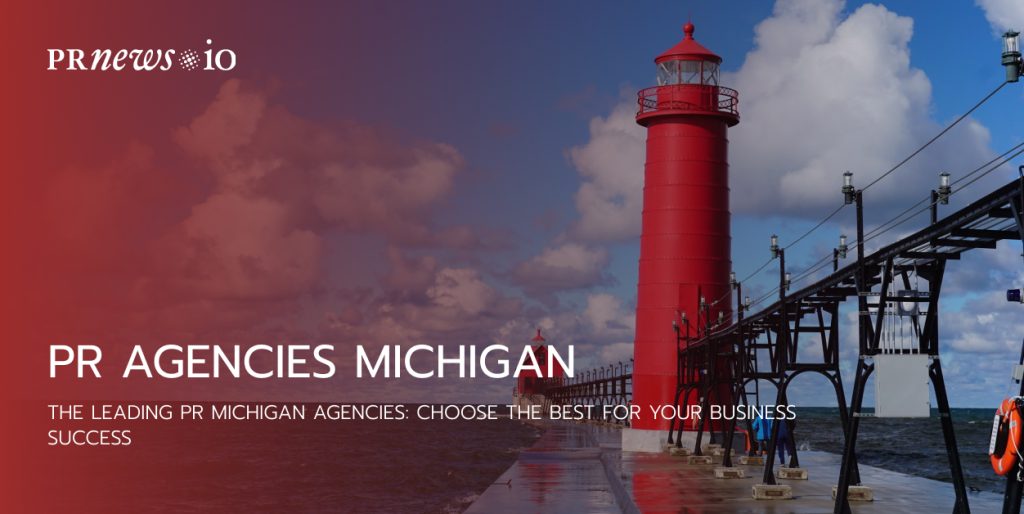Do you know the difference between marketing and PR? It’s not rare for people looking for specialists in the marketing or PR field to feel confused about marketing vs. PR differences. The lines between these two notions are often blurred. If you feel the same or need more facts to draw a clear division between marketing and PR, the following information will come in handy for you.
Content Marketing Platform
- 100,000+ media publications;
- get backlinks to your product;
- scale work with content distribution.
What is marketing?
Marketing is a more general term than PR, which covers advertising and PR methodologies. All marketing efforts promote brand awareness, service or product, or an individual in a chosen niche. Marketing is a vital part of every business that aims to reach out to potential clients and sell their offers. The job of a marketing specialist suggests using marketing practices to engage with the groups of potential clients and promote everything that a business tries to sell.
There are many tasks that a marketing specialist may be running daily. It includes setting up and promoting social media campaigns to keep the community more engaged with the latest updates, new product releases, special deals, etc. To watch the performance and success of their effort, marketing specialists create reports of users’ engagements and draw analyses of their audience. It lets them gather more information about their customers to choose the marketing approaches that will be the most useful in their community and bring their companies more revenue at the end of the day.
Social media is not the only responsibility of an online marketing specialist. Other tasks include:
- Managing budgets;
- Data analysis;
- Market research;
- Generating creative ideas;
- Designing and sending emails, and more.
Marketing covers multiple spheres that can be performed online to achieve marketing goals. These are:
- Search Engine Optimization, which suggests that an online marketing specialist works with keywords, content and improves the positions of his business website in search engines;
- Pay-per-click marketing involves creating paid content and targeted ads campaigns that will be revealed to selected audiences in search engines and on official websites.
- Video marketing, which suggests using video content for effective promotion of brands and their businesses to engage the target audience;
- Content marketing that lets businesses interact with the audience and represent their brands through content;
- Social media marketing deals with running social media campaigns and interacting with users on popular social media platforms.
Working in the online marketing niche, a specialist operates many buzzwords that only a person working in the online marketing niche will clearly understand. The terms that are specific to the online marketing field include:
- CPC – cost per click;
- ROI – return on investment;
- CTR – click-through rate, which is the number of users who have clicked on a specific link;
- CTA is a call to action that encourages users to download, buy, learn more information about your order, etc.
What is PR?
The main purpose of PR or public relations is to let a wider audience know about a brand or service within the media. Unlike marketing that aims to multiple businesses earnings through increased sales, the goal of PR specialists is to establish a positive brand’s reputation and gain positive press coverage while sharing publications on reputable media outlets. In simple words, PR aims to gain wider business exposure without driving sales.
Companies may join forces with PR agencies and professional PR teams or have a dedicated PR department within the structure of their organizations. Depending on the micro-niche to which a business belongs, a PR campaign may target the B2B or B2C niches and increase brand awareness in charity, financial, political, or other industries.
The role of a PR agent covers such day-to-day responsibilities as:
- Planning PR campaigns
- Writing press releases;
- Planning PR campaigns;
- Following the news in the chosen industry;
- Looking for media outlets for sharing press releases;
- Building strong relationships with stakeholders;
- Managing comments on behalf of a company e.g. in a crisis/responding to bad press.
Marketing vs. PR Differences
Here comes the main part that most of us are most interested in. What’s the marketing vs. PR difference?
As we’ve already mentioned, the main objective of marketing campaigns is driving sales by promoting a product, service, or business as a whole. PR is oriented on maintaining a positive reputation of a company or a brand while sharing press releases and similar publications on the chosen media outlets.
What are other marketing vs. pr differences? Let’s see.
PR and Marketing Objectives
- The goals of a PR team focus on managing a positive reputation of a brand through various communication channels and partnering with media resources regarding sharing publications on their media resources.
- The goal of a marketing team is to find ways of reaching out to the target audience and encouraging them to take sales-focused actions to generate more revenue for their brands.
Target Audiences
Marketing and PR campaigns target different audiences:
- Public Relations teams aim to reach out to wider audiences than online marketing agencies do. While using personalized and campaign-based outreach strategies and approaches, they develop individualized communications. That way, PR agents can appeal to the needs and interests of the target users and increase their interest in the promoted brands through well-crafted press releases.
- Marketing teams reach out to narrower groups of users, their customers or users who may be potentially interested in the promoted services. While reaching out to their target audiences, online marketing specialists use email marketing and digital advertising to reach out to potential buyers.
Daily Tasks
The tasks of PR agents vary based on the clients’ requests. A PR agency can help a client create an effective communication strategy or brainstorm on the crisis management plan whenever it’s needed. Other day-to-day tasks of PR agents include:
- Taking care of company messaging;
- Writing and distributing press releases;
- Seeking public speaking opportunities;
- Creating a reputable brand’s image in media;
- Managing media relations on behalf of their client.
The day-to-day tasks of marketing specialists include the following:
- Running social media campaigns on behalf of a brand;
- Making an ads plan, creating and managing ads campaigns;
- Researching the market to find the right direction for a marketing campaign;
- Working on sales pitches, and launches, brochures, PDFs, etc.
Performance Metrics
Whether it comes to marketing or PR, the effectiveness of online campaigns should be measured and analyzed to understand what techniques prove to be the most effective for your brand.
The key performance metrics that let PR specialists measure the success of their effort includes:
- Social media buzz from journalists, influencers, and bloggers;
- The amount of positive press generated on media outlets in the niche to which your business belongs;
- The sentiment of the coverage received, etc.
The key performance metrics for marketing specialists include:
- The stats of product sales, whether they meet or exceed the set goals;
- ROI of marketing and advertising strategies and campaigns;
- Whether the social media buzz gave a push for product sales boost.
Where PR and Marketing Coincide
While planning a successful online promo campaign, businesses should consider combining PR and marketing strategies to help them achieve better results. PR and online marketing can influence and support each other in the fields related to the following aspects.
- It’s challenging to increase product or service sales rates if the brand has limited publicity.
- Public relations help businesses establish better communication with the audience, gain their trust, and grow the chances people will continue dealing with the brand buying its deals.
- PR and marketing agencies can join forces by increasing brand awareness through social media campaigns and press release distribution.
- Both PR and marketing teams are engaged in influencer marketing, which lets each party reach its own goals. A marketing team can drive more sales through ad campaigns, while the PR agents can convey the brand-building messages more effectively.
Wrapping Up: Marketing vs. PR
PR and marketing are often confused because they cornice in multiple aspects and are often interconnected. Although PR and marketing teams have different goals and reach different audiences, they may support the same company or brand. Simply put, PR supports can help the marketing strategy gain wider exposure and reach more potential clients willing to buy.
The two branches are also different in the strategies and approaches they use to reach their objectives. The period of time when marketing and PR campaigns run is also different. A marketing campaign may last for several days or weeks, whereas the effect of the PR campaign can be seen over a longer time.





